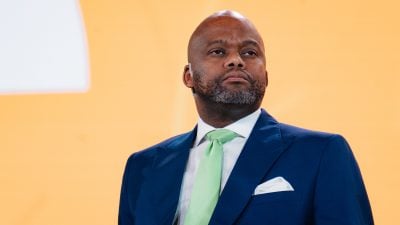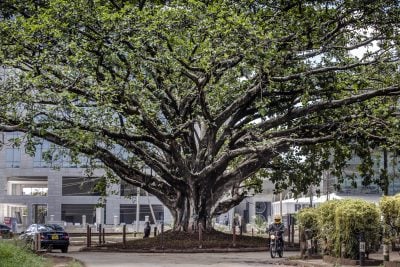This article was produced with the support of United Nations Economic Commission for Africa (ECA)
The transition to green energy — that is necessitated by climate change – presents an opportunity for African countries to pursue a new course of industrialisation, which has eluded many countries since independence. Many of the critical minerals needed to power cars, homes and industries are found on the continent. In addition, Africa also has vast potential in renewable energy that it can rely on to power its own development.
These and other deliberations were at the heart of the United Nations’ Economic Commission for Africa’s 56th Conference of Ministers of Finance and Economic Planning, held in Victoria Falls, Zimbabwe. The summit was held under the theme “Financing the transition to inclusive green economies in Africa: imperatives, opportunities and policy options”. Speaking at the opening of the ministerial session, which was preceded by 4 days of expert sessions and reports, Dr E. D. Mnangagwa, President of the Republic of Zimbabwe, noted that climate change imposes a disproportionate burden on Africa, despite the continent’s relatively small share in the emissions that have caused it. Africa’s position is further weakened by the unavailability of investment that it requires to tackle the crisis and meet its Nationally Determined Contributions.
The need for innovative finance
This situation, the President said, requires African leaders to consider innovative options to bridge the financing gap. “Ministers of finance, planning and economic development from across Africa are called upon to come up with alternative resource mobilisation initiatives that transform our economies in line with technological developments to meet our climate goals and emerging demands. We must think outside the box and trust in our home grown initiatives,” the President urged.
Despite this challenge, President Mnangagwa said the energy transition could, on the whole, be a boon to the continent. African states, he charged, must take advantage of the transition and the abundant resources on the continent, to build a new industrial base on which to build sustainable economies. “The need to nurture and grow a broad spectrum of value chains that can generate green industrial development cannot be overemphasised. We must equally promote investment in green sectors, facilitate technology transfer, develop green investment standards and encourage regional cooperation.”
Mnangagwa called for partnerships between states and the private sector, noting that “while governments have the mandate to deal with emerging challenges, businesses have the innovation, technology and drive to deliver on the solutions we need.” Getting the investment needed to drive these solutions, however, remains a challenge for many African countries.
Dr Hanan Morsy, deputy executive secretary and chief economist at the United Nations Economic Commission for Africa (ECA), pointed out that while Africa needs about $2.8 trillion to finance its nationally determined contributions (NDCs) to emissions reduction, the continent has received only about $300bn. “The financing that comes to Africa for clean energy technology is only 2% of the global financing available and this can lead us into a vicious cycle where we have investment shortfalls that actually make us more exposed to climate change,” she said.
The situation, she observed, is compounded by the precarious debts that many African countries have to contend with in the wake of the pandemic and partly as a result of the interest rate hikes that central banks in the west embarked on to address the inflation crisis of 2022. Morsy said “this then further erodes the fiscal space, increases the cost of financing and compounds all the challenges that we are facing.”
For some countries, this means having to choose between investment in social services, climate response and debt servicing. Morsy suggested scaling up concessional finance, boosting the capacity of multilateral financial institutions, strategically re-allocating development funds and implementing robust debt resolution frameworks to enhance African countries’ capacity to respond to the climate crisis and the energy transition.
Tax is essential
African countries can also raise more funds for the green transition by blocking some of the illicit outflows from their economies, mostly through tax avoidance. Mary Baine, deputy executive secretary of the African Tax Administration Forum, called for more political support for African negotiators at the Framework Convention on International Tax Cooperation, which could arrive at uniform rules to prevent tax avoidance, especially that by large multinationals. Among the 27 countries participating in negotiations, only a handful of African countries are actively engaged, while the US and other nations have substantial delegations, indicating an imbalance.
African countries, it was recommended, must embrace a comprehensive stakeholder approach, enhance coordination efforts to cultivate consensus, mobilise support across the Global South and ensure that they have proficient technical expertise during negotiations.
With its wealth of resources, Antonio Pedro, deputy executive secretary of the ECA, said, it is unfortunate that Africa continues to trail other continents on several development fronts. Calling for steps to address what he referred to as the “paradox of plenty,” Pedro said it was time for Africa to transition away from resource extractivism, a practice characterised by the exportation of raw minerals without fostering local economic ties, thereby resulting in minimal or no improvements in resource-rich communities.
Noting the procurement challenges that were highlighted by the Covid-19 pandemic, Pedro advocated for Africa to localise its supply chains and said the ECA was working to promote the concept of “Afro-shoring,” meaning that the continent should produce and consume more of the goods produced within its borders. The success of the African Continental Free Trade Area (AfCFTA) would, he said, enhance the capacity of African producers and establish a market encompassing 1.4bn people. “We need to investigate what we have to do to make it work better and we need to move from potential to action and real development outcomes.”
Tantalising technological prospects
Even as Africa grapples with these challenges, advancements in artificial intelligence (AI), hold tantalising prospects for boosting efficiencies, achieving social development milestones and improving quality of life on the continent. James Manyika, senior vice-president for research, technology, and society at Google and co-chair of the United Nations’ high-level advisory body on artificial intelligence, emphasised this during his delivery of the 2024 Adebayo Adedeji Memorial Lecture on the first day of the ministerial sessions.
Manyika highlighted AI’s potential to profoundly impact various facets of life, envisioning its role in assisting individuals, catalysing economic growth and prosperity, accelerating scientific discoveries, and addressing societal challenges to foster development. Some of these are already being felt in the continent, such as “AI models being trialled that make ultrasounds more accessible to lightly-trained ultrasound operators in under-resourced settings [in Kenya] and “AI-powered screenings helping to catch tuberculosis early [in South Africa].
Despite the considerable advantages of artificial intelligence (AI), Manyika highlighted potential drawbacks and complexities, particularly concerning its impact on the job market. While research suggests that AI could generate more jobs, including currently unknown types, Manyika cautioned that its benefits might be undermined if widespread adoption leads to job displacement. “Tackling these issues of workforce readiness, skilling and supporting worker transitions will be critical,” he emphasised.
Manyika applauded countries such as Rwanda, Nigeria, Mauritius, and Kenya for their proactive efforts in establishing policies conducive to robust governance and regulation in the AI domain. He stressed that these initiatives set positive precedents and are pivotal in fostering similar endeavours across the continent. Given Africa’s youthful demographic, Manyika emphasised the urgency of equipping its workforce with the necessary skills to navigate the shifts induced by AI throughout their professional trajectories.
Sustainable development goals
According to the ECA, the organisation is providing policy formulation and implementation support to countries on the continent as they navigate these challenges. Linus Mofor, senior environmental affairs officer at the ECA’s Climate Policy Centre, reported that the ECA has set up an initiative under the United Nations SDG-7 sustainable development goals framework, to help African countries develop bankable projects. It has also set up an Africa Climate Resilient Investment Facility, through which it promotes climate-resilient investments in the continent.
Said Adejumobi, director of the strategic planning, oversight and results division of the ECA, emphasised the close collaboration between the UN and the African Union (AU) in various initiatives. He noted that the UN has been actively involved in the formulation of the AU’s second 10-year implementation plan and expressed the commitment of both organisations to collaborate in operationalising the plan.
The two bodies have partnered on several fronts, including the establishment of an African credit rating system, the development of the UN African data and statistics system and the African knowledge management hub, aimed at providing accurate information to planners and decision-makers.
In addition to these, the UN and AU have joined forces to combat illicit financial flows, with the objective of increasing domestic resources. They have also collaborated on initiatives related to digital transformation and the promotion of tax cooperation through conventions and agreements. “The aspiration of a peaceful, democratic, and prosperous Africa hinges on a strong partnership between the AU, the UN and other key strategic partners,” Adejumobi said.
In their end-of-conference statement ministers acknowledged that Africa is lagging behind in meeting the SDGs outlined in the 2030 Agenda, with some indicators showing regression. On the completion of the first 10-year implementation plan of AU’s Agenda 2063, they noted achievements in certain areas but shortcomings in others. The ministers emphasised the need for an additional $1.6 trillion by 2030 to fulfil the SDGs, expressing concern that current expenditure falls short of the required amount to achieve these goals on the continent.
The ministers urged the ECA to step up its advocacy for timely reform of global financial institutions to better align with the needs of Africa and other developing nations. They emphasised the importance of collaboration between ECA, the AU and other stakeholders to leverage science and technology in Africa’s transition to an inclusive green economy. This should include initiatives to establish unified rules and principles governing the promotion, protection, and enforcement of intellectual property rights within the AfCFTA.
A fairer finance framework
In his closing address, Claver Gatete, UN under secretary-general and executive secretary of the ECA backed the calls for a re-orientation of the global financial and political architecture towards a fairer paradigm that acknowledges the increased power and presence of countries that were not accounted for in the original structures. “It is OK for us to say that eighty years ago Africa was not at the table. It is probably acceptable to say that when the Millennium Development Goals were adopted, we were also at the periphery. But we will not be forgiven today if we do not occupy centre stage as architects of a new global financial architecture that works for us,” he stressed.
With better domestic resource mobilisation, a greater role for the private sector and deeper collaboration to build regional value chains, Africa, he said, can be transformed. Ending on a hopeful note, Gatete declared, “yes, it is fair to say that we are confronted with some pertinent questions. But, against the odds, we are still standing: this should give us hope. Hope, because we can do more with what we have. With deliberate intent and a unity of purpose we can be in a much better place. I have never been more hopeful that the future belongs to Africa!”

 Sign in with Google
Sign in with Google 



